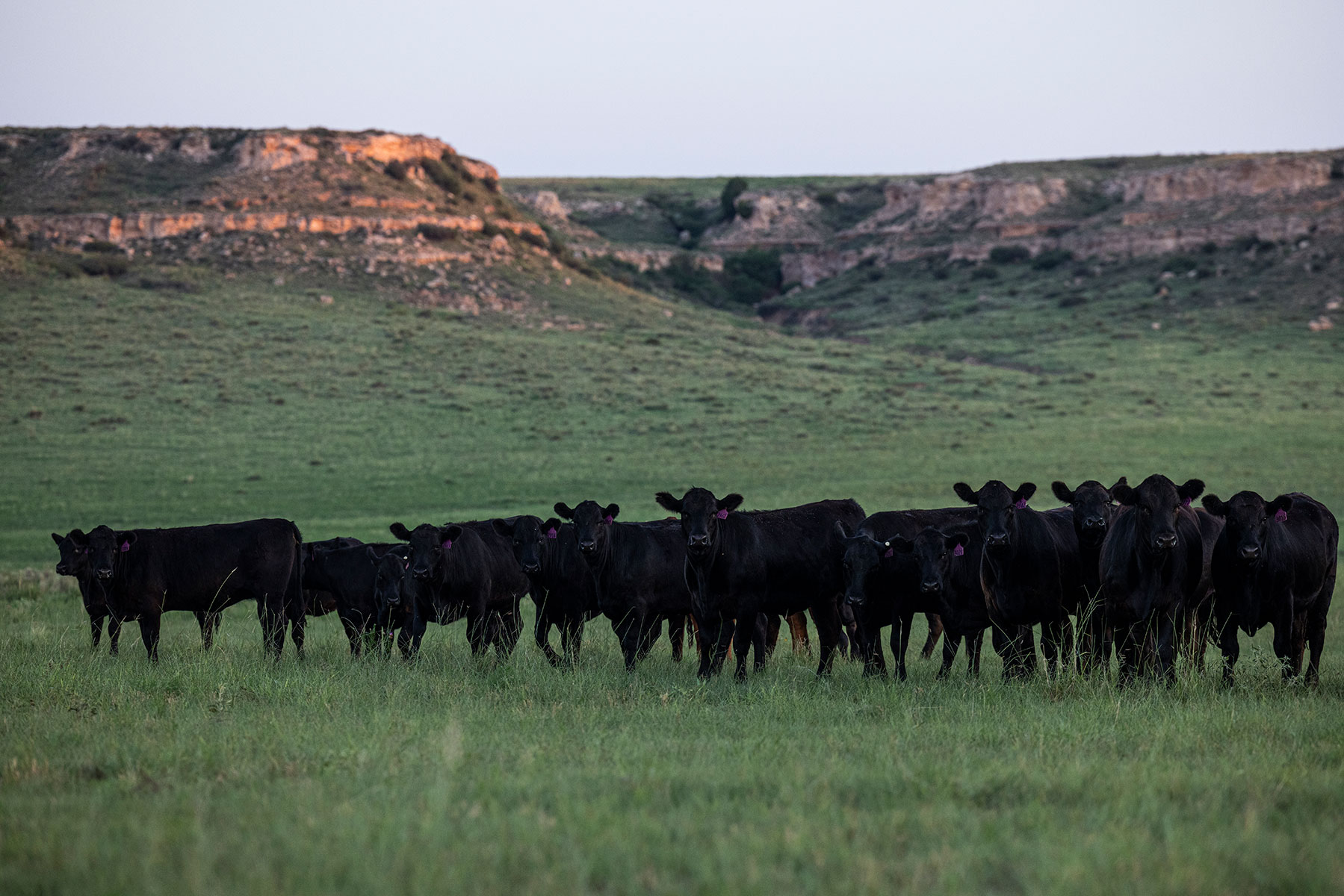When choosing premium beef, we know there can be some confusion about precisely what all the labels mean. Industry terms like “grass-finished” and “grain-finished beef” may not always be so clear to everyone, and knowing the differences can help when you’re looking for the highest quality meat to buy.
At Ribbonwire Ranch, all our beef is organic, grass-fed, and grain-finished. Today, we’ll look at precisely what it means for meat to be grain finished and the advantages it can have in taste and quality over grass-finished beef.
What is grass-fed beef?
All cattle feed on grass for the majority of their lives. Therefore, the term “grass-fed” technically can apply to all beef production and doesn’t disclose anything about the quality of cattle or their welfare. For this reason, the “grass-fed” label on your beef isn’t defined or regulated by the USDA and could just as easily refer to beef where the cattle are fed silage or pelleted feed in commercial feedlots.
What does it mean to finish beef?
The term “finishing” represents what cattle eat in the final stages (around 4-8 months) of their lives before processing. In some cases, their diet of grass is unchanged, leading beef to be labeled as “grass-finished.”
However, at Ribbonwire Ranch, we take a different approach, believing that grain-finished beef results in the highest quality product.
What is grain-finished beef?
For beef to be grain finished, we switch our cattle to a balanced diet of grains several months before the end of their lives. High-energy, high-protein grain options help cattle gain weight and grow muscle strength.
At Ribbonwire, we use the highest quality organic grains that are grown on our own farm. Grain finishing is introduced slowly to allow the bacteria in the cow’s stomach to adjust to the new sources of nutrients.
What’s the difference between grass and grain-finished beef?
We believe grain finishing gets us the highest quality product for several reasons.
For starters, grain-finished beef tends to be more flavorful. The grains add a layer of fat that enhances the marbling in the beef, producing more significant cuts of meat that are more tender and juicy. In contrast, grass-finished beef results in a beefier—or “gamier”—flavor and lacks the same marbling and tenderness.
While it is true that grass-finished cattle can produce leaner meat, grain-finished beef isn’t inherently less healthy. Pasture-raised cows finished on local, organic grains can still live healthy lives. We’ve found that a combination of grass-fed, grain-finished beef gets us the best of both worlds, resulting in the tastiest, highest-quality product.
In addition to producing more delicious meat, grain finishing is a more sustainable process that’s less taxing on the environment. In contrast, it can take up to three times longer to finish cattle on grass, adding to the environmental costs.
Our Cattle
The cattle at Ribbonwire Ranch are grass fed and finished on organic grains. While the majority of organic meat available in the retail market is imported, our cattle are bred and pasture-raised on-site, never leaving the ranch from birth to finish.
Instead of using added hormones or genetically modified feeds, we’ve taken a different approach. The organic grains that go into our feeds are grown and harvested on our ranch. With the capability to run our own farming operation, Ribbonwire can ensure quality ingredients go into our beef.
That’s why at Ribbonwire, we are confident in the superior quality of our products, consistently producing some of the finest and most delicious grass-fed, grain-finished, organic beef.

